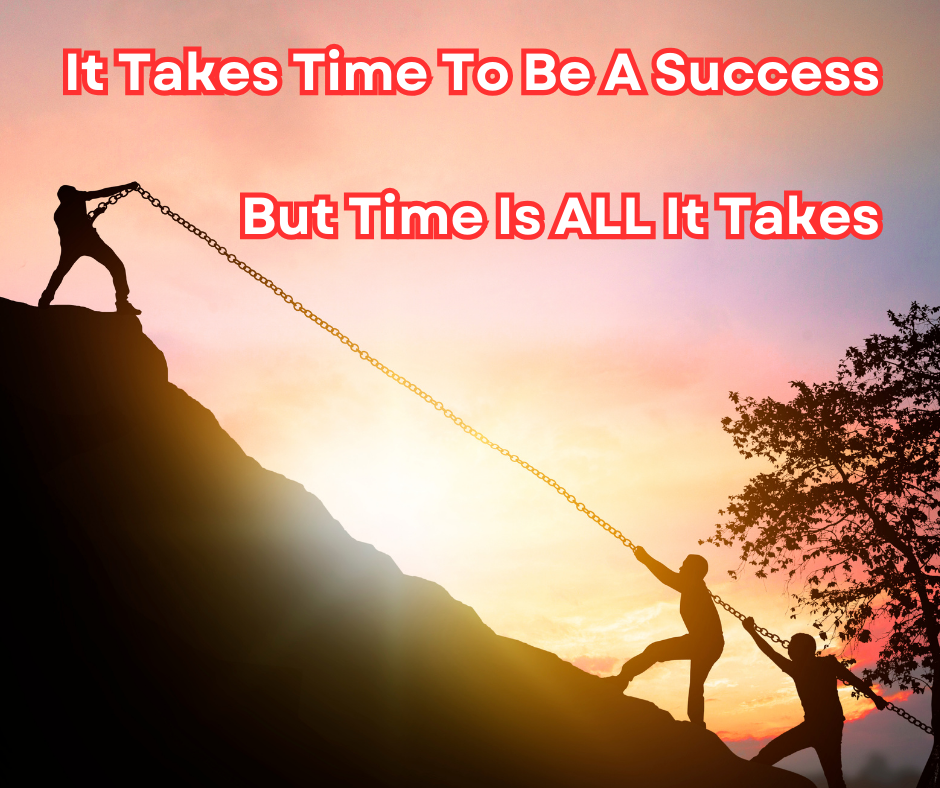Moving On From A Toxic Relationship
Moving on from a toxic relationship is a challenging but crucial step towards a healthier and happier life. In this article, we’ll explore the signs of a toxic relationship, recognize the need to move on, and provide actionable steps to safely exit and heal. This journey is about rediscovering your worth and embracing a future filled with positivity and growth.
Signs of a Toxic Relationship
Recognizing the signs of a toxic relationship is the first step in freeing yourself from its grip. Toxic relationships can manifest in various forms, often leaving individuals feeling trapped and helpless. It’s important to identify these signs early on to prevent further harm.
Emotional Manipulation and Control
Toxic partners often use emotional manipulation to maintain control over the relationship. They might play mind games, twist your words, or make you feel guilty for their actions. This behavior can be subtle at first but becomes more apparent over time.
“You never listen to me, and that’s why I get so upset,” a toxic partner might say, shifting the blame onto you.
In such scenarios, you might find yourself constantly questioning your actions and feelings, wondering if you’re the one at fault. This manipulation erodes your self-esteem and leaves you feeling powerless. To regain your strength and confidence, consider learning how to heal after a toxic relationship.
Lack of Support and Empathy
In a healthy relationship, partners support and empathize with each other. However, in a toxic relationship, you may find that your partner dismisses your feelings or belittles your experiences. This lack of support can make you feel isolated and unworthy of love.
“Why do you always make such a big deal out of everything?” might be a common refrain from a toxic partner, invalidating your emotions.
When your partner fails to provide emotional support, it can lead to feelings of loneliness and frustration. It’s essential to recognize that this behavior is not normal and should not be tolerated.
Consistent Negativity and Criticism
Another hallmark of a toxic relationship is constant negativity and criticism. A toxic partner might criticize your appearance, belittle your achievements, or undermine your confidence. This behavior can make you feel inadequate and unappreciated.
It’s crucial to understand that constructive criticism is different from toxic criticism. Constructive criticism aims to help you grow, while toxic criticism is meant to bring you down. Recognizing this difference can help you identify toxic patterns in your relationship.
Recognizing the Need to Move On From A Toxic Relationship
Once you’ve identified the signs of a toxic relationship, the next step is acknowledging the need to move on. This realization can be difficult, but it’s a vital part of the healing process.
- Reflect on how the relationship impacts your mental and physical health.
- Consider how your needs and goals align with your current situation.
- Realize that you deserve a relationship filled with love, respect, and support.
Impact on Mental and Physical Health
Toxic relationships can take a significant toll on your mental and physical health. Stress, anxiety, and depression are common consequences of enduring emotional abuse. Over time, these mental health issues can manifest physically, leading to fatigue, headaches, and other ailments.
It’s important to prioritize your well-being and recognize when a relationship is causing more harm than good. By understanding the impact on your health, you can make an informed decision to move forward.
Focusing on Your Own Needs and Goals
In a toxic relationship, your needs and goals often take a backseat to your partner’s demands. It’s time to shift the focus back to yourself. Consider what you want out of life and how your current relationship aligns with those aspirations.
Ask yourself questions like:
- What are my personal goals and dreams?
- How does this relationship support or hinder my growth?
- Am I truly happy and fulfilled in this relationship?
By focusing on your own needs, you can gain clarity on the path you want to take and the changes necessary to achieve your goals.
Steps to Safely Exit a Toxic Relationship
- Recognize the signs of toxicity and acknowledge the need for change.
- Build a strong support network of friends and family.
- Establish clear boundaries and cut contact if necessary.
- Develop a practical plan to leave, focusing on safety and logistics.
- Seek professional help and prioritize self-care during the transition.
Leaving a toxic relationship is not easy, but it’s a necessary step towards reclaiming your life and happiness. The process requires courage, planning, and support from those around you. By taking deliberate steps, you can ensure a safe and effective exit.
First, recognize the toxic dynamics at play. Acknowledging the problem is the foundation of any solution. Reflect on the patterns of behavior and how they impact your well-being. Once you’re aware, it’s time to take action.
Next, build a support network. Surrounding yourself with trusted friends and family can provide the encouragement and strength needed to move forward. These individuals can offer emotional support, practical advice, and even a safe place to stay if necessary.
Building a Support Network
A strong support network is essential when leaving a toxic relationship. Reach out to those who care about you and explain your situation. Be honest about your feelings and intentions. Let them know how they can help, whether it’s providing a listening ear or assisting with logistics.
Consider joining support groups or online communities where you can connect with others who have faced similar challenges. Sharing experiences and advice can be empowering and comforting during this difficult time. For more guidance, you might find it helpful to explore resources on how to heal after a toxic relationship.
Establishing Boundaries and Cutting Contact
Establishing boundaries is a crucial step in breaking free from a toxic relationship. Decide what level of contact, if any, is appropriate for your situation. Communicate your boundaries clearly and assertively to your partner.
- Limit or cease all communication if it feels necessary for your safety.
- Block phone numbers and social media accounts to prevent unwanted contact.
- Inform mutual friends of your decision to avoid misunderstandings.
By setting boundaries, you take control of the situation and protect your emotional well-being. Remember, you have the right to distance yourself from anyone who causes harm or distress.
Additionally, it’s important to prepare for potential pushback from your partner. They may try to manipulate or guilt-trip you into staying. Stay firm in your decision and remind yourself of the reasons for leaving.
Developing a Practical Plan to Leave
Creating a practical plan to leave is essential for a smooth transition. Start by assessing your financial situation and securing resources. This may involve saving money, finding a new place to live, or seeking legal advice if necessary.
Consider the logistics of your move. Plan how and when you will leave, and who can assist you in the process. Pack your belongings discreetly if needed, and ensure you have important documents and essentials ready to go.
Healing and Self-Care After Leaving A Toxic Relationship
Once you’ve left the toxic relationship, the healing process begins. It’s time to focus on yourself and rebuild your life. This journey is about rediscovering your identity, nurturing your mental health, and embracing new opportunities.
Healing takes time and patience. Be gentle with yourself and acknowledge the emotions that arise. It’s normal to feel a mix of relief, sadness, and uncertainty. Allow yourself to grieve the relationship while looking forward to a brighter future.
Seeking Therapy or Counseling
Therapy or counseling can be incredibly beneficial after leaving a toxic relationship. A professional can help you process your experiences, develop coping strategies, and rebuild your self-esteem. They provide a safe space to explore your feelings and gain insights into your past and future relationships.
Reconnecting with Friends and Family
Reconnecting with friends and family is an important part of the healing process. Re-establishing these connections can provide a sense of belonging and support. Spend time with loved ones, engage in activities you enjoy, and create new memories.
Rebuilding Confidence and Self-Esteem
Rebuilding confidence and self-esteem is crucial after leaving a toxic relationship. Focus on self-care activities that promote well-being, such as exercise, meditation, and hobbies. Celebrate your strengths and accomplishments, no matter how small they may seem.
Learning from the Experience and Moving Forward
“The only real mistake is the one from which we learn nothing.” – John Powell
Reflecting on your experiences can provide valuable lessons for the future. Identify patterns and red flags that contributed to the toxic relationship. Use this knowledge to set healthy boundaries and standards in future relationships.
Embrace personal growth and development. This is an opportunity to redefine your goals and priorities. Focus on what truly matters to you and pursue a life that aligns with your values.
Finally, remember that you deserve love, respect, and happiness. By moving on from a toxic relationship, you’re taking a powerful step towards a brighter future. Trust in your strength and resilience, and know that you are capable of creating the life you desire.
Identifying Patterns and Red Flags
“The first step towards change is awareness.” – Nathaniel Branden
Recognizing patterns and red flags in relationships is crucial for avoiding toxic dynamics in the future. Pay attention to how your partner communicates and handles conflicts. Do they resort to manipulation, blame, or dismissiveness? These are warning signs that should not be ignored.
It’s also important to observe how you feel in the relationship. Do you feel valued and respected, or do you constantly second-guess yourself? Trust your instincts and listen to your emotions. They can provide valuable insights into the health of your relationship.
By identifying these patterns early on, you can make informed decisions about your relationships and protect yourself from potential harm.
Embracing Personal Growth and Development
Leaving a toxic relationship opens the door to personal growth and development. This is an opportunity to focus on your interests, passions, and goals. Embrace new experiences and challenges that push you out of your comfort zone.
Consider setting personal goals that align with your values and aspirations. Whether it’s pursuing a new hobby, furthering your education, or improving your health, these goals can provide a sense of purpose and fulfillment.
Setting Healthy Relationship Standards
As you move forward, it’s essential to set healthy relationship standards. Reflect on what you need and want in a partner. Establish clear boundaries and communicate them openly in future relationships. Always remember that a healthy relationship is built on mutual respect, trust, and support.

Frequently Asked Questions (FAQ) About A Toxic Relationship
Here are some common questions and answers to help you navigate leaving a toxic relationship and moving forward.
What are the early signs of a toxic relationship?
Early signs of a toxic relationship include constant criticism, emotional manipulation, lack of empathy, and feeling controlled or isolated. If you notice these behaviors, it’s important to address them and evaluate the relationship’s impact on your well-being.
Trust your instincts and seek advice from trusted friends or professionals if you’re unsure about the relationship’s health.
How can I prepare to leave a toxic partner?
Preparing to leave a toxic partner involves careful planning and support. Start by building a support network of friends and family who can provide emotional and practical assistance. For more guidance, consider following the steps outlined in this article on how to leave a toxic relationship.
Develop a clear exit plan that includes financial arrangements, living arrangements, and legal considerations if necessary. Ensure your safety and well-being are prioritized throughout the process.
- Save money and gather important documents.
- Find a safe place to stay if needed.
- Seek legal advice if necessary.
What should I do if my partner tries to manipulate me into staying?
If your partner tries to manipulate you into staying, stay firm in your decision. Remind yourself of the reasons for leaving and the impact of the relationship on your well-being.
Communicate your boundaries clearly and avoid engaging in arguments or emotional manipulation. Seek support from friends, family, or professionals to reinforce your decision.
- Limit contact and avoid engaging in arguments.
- Seek support from trusted individuals.
- Focus on your reasons for leaving and your future goals.
Remember, you deserve to be in a relationship that respects and values you.
How long does it take to heal after a toxic relationship?
Healing from a toxic relationship is a personal journey and varies for each individual. It can take weeks, months, or even longer to fully heal and rebuild your life. Be patient with yourself and allow the healing process to unfold naturally.
Engage in self-care activities, seek therapy if needed, and surround yourself with supportive individuals. Focus on personal growth and rediscovering your identity outside of the relationship.
How can I prevent entering another toxic relationship in the future?
Preventing another toxic relationship involves self-awareness and setting healthy boundaries. Reflect on past experiences and identify patterns or red flags that contributed to the toxic dynamics.
Communicate your needs and boundaries clearly in future relationships and prioritize mutual respect and trust. Trust your instincts and seek relationships that align with your values and aspirations. For more guidance, consider reading about how to leave a toxic relationship.
“The best way to avoid a toxic relationship is to know your worth and refuse to settle for anything less.” – Unknown
By prioritizing your well-being and setting healthy standards, you can create fulfilling and loving relationships in the future.
Moving on from a toxic relationship is a courageous journey that leads to personal growth and happiness. Trust in your strength and resilience, and know that you are capable of creating a life filled with love and respect.
Key Takeaways Relating To A Toxic Relationship
- Identify signs of emotional manipulation and control in your relationship.
- Understand the impact of a toxic relationship on your mental and physical health.
- Learn how to establish boundaries and develop a plan to leave safely.
- Discover the importance of seeking therapy and building a support network.
- Recognize your worth and set healthy relationship standards moving forward.















